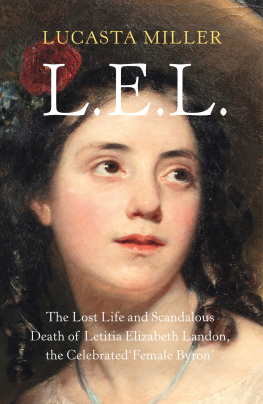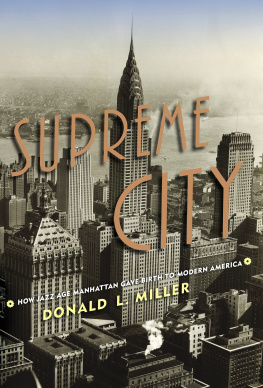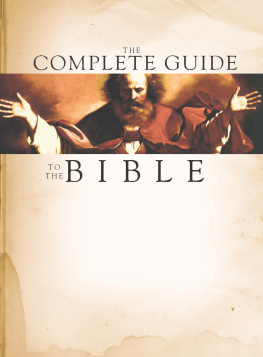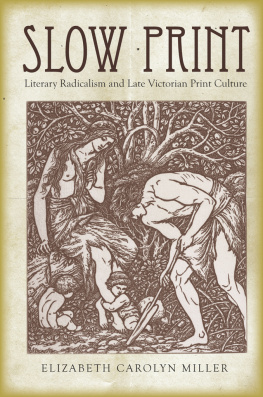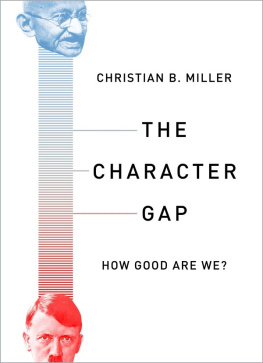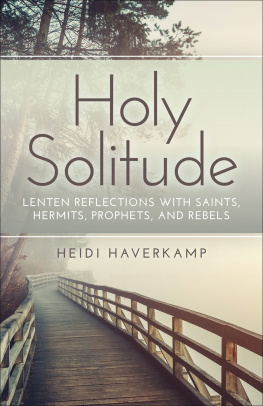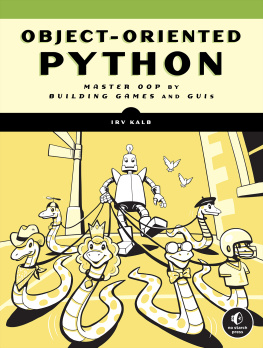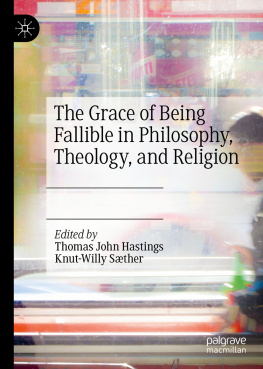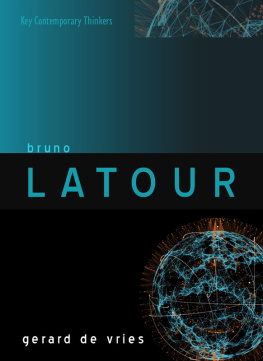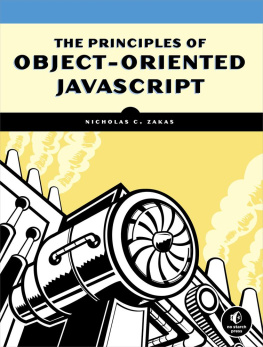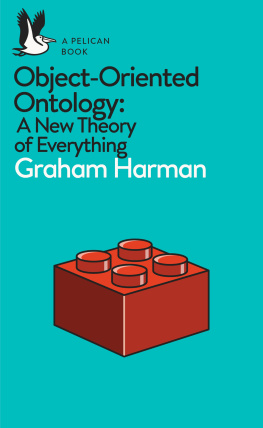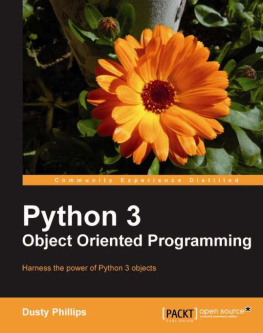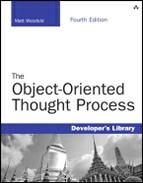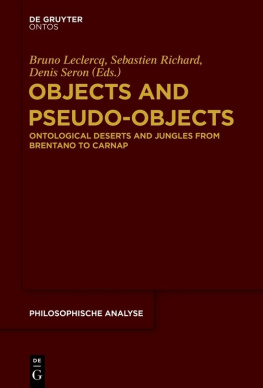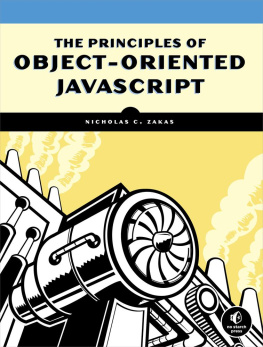Speculative Grace
Series Board
James Bernauer
Drucilla Cornell
Thomas R. Flynn
Kevin Hart
Richard Kearney
Jean-Luc Marion
Adriaan Peperzak
Thomas Sheehan
Hent de Vries
Merold Westphal
Michael Zimmerman
John D. Caputo, series editor

ADAM S. MILLER
Speculative Grace
Bruno Latour and Object-Oriented Theology

Copyright 2013 Fordham University Press
All rights reserved. No part of this publication may be reproduced, stored in a retrieval system, or transmitted in any form or by any meanselectronic, mechanical, photocopy, recording, or any otherexcept for brief quotations in printed reviews, without the prior permission of the publisher.
Fordham University Press has no responsibility for the persistence or accuracy of URLs for external or third-party Internet websites referred to in this publication and does not guarantee that any content on such websites is, or will remain, accurate or appropriate.
Fordham University Press also publishes its books in a variety of electronic formats. Some content that appears in print may not be available in electronic books.
Library of Congress Cataloging-in-Publication Data is available from the publisher.
Printed in the United States of America
15 14 13 5 4 3 2 1
First edition
for Jack
Contents
Foreword
LEVI R. BRYANT
in the end, only theologians can be truly atheistic
Jacques Lacan
Since its inception with the work of Graham Harman, object-oriented ontology (OOO) has had an uneasy relationship with theology. Within the framework of flat ontologies, while one object may enjoy greater power and influence than another object, there is no object that is the sovereign of all the others nor any object that differs in kind from all the others.
These core claims generate the tension between OOO and theology. Historically, Western theology has offered the options of theism, deism, and pantheism. At the risk of being reductive, theism argues for the existence of a personal God that designs and creates the world, is capable of intervening in the world in miraculous ways that violate the laws of physics, that is concerned with the welfare of individual persons, and that is responsive to prayer. By contrast, deism argues that, though God designed the laws of nature and created the universe, he then set his creation loose to unfold of its own accord. As a consequence, the deistic God does not respond to prayer nor intervene in miraculous ways. Finally, pantheism argues that God and nature are one and the same such that God is simply the unfolding of nature according to the laws of physics, and each being is both a manifestation of and element in God. Each of these theologies tend to share the thesis that God is omnipotent, omniscient, and infinite. And, with the exception of pantheism, these theologies tend to hold that God is a preeminent being, transcendent to creation and different in kind from other objects.
OOO is inconsistent with the claims of these theological variations. Insofar as OOO argues that being is composed of discrete units that are independent of their relations, it is necessarily at odds with pantheism. Where pantheism argues that all entities are interrelated elements in the being of God, OOO rejects the thesis that all entities are related to one another or that they form a totality. Where theism and deism generally argue that God is a preeminent being, transcendent to all of creation, OOO favors a flat ontology without any transcendent sovereign. In this respect, if God does exist he would be just one being among others. However, the point on which OOO and the theologies of theism and deism are most starkly opposed is Gods omniscience and omnipotence. The thesis that all substances are irreducibly withdrawn from one another spells the ruin of any being that would be omniscient and omnipotent. Insofar as this withdrawal entails that all relations between entities are indirect, it follows that no being can have perfect and complete knowledge of another and that no being can completely master another. In affirming the dignity and independent existence of each object, OOO also affirms the essential frailty, weakness, and limitation of each object.
It is in light of the foregoing that Adam Millers Speculative Grace is so startling. The theology he proposes in the remarkable pages that follow sidesteps the three options afforded by traditional Western theology while also evading conflict with OOO. Where traditional theology understands grace as an unexpected gift sent to humans by a transcendent God, Miller sets out to show how we might instead understand grace as woven into the very fabric of being. In this regard, Millers theology is a theology without a theos. However, this theology should not be understood to be an ordinary atheism where it is claimed that God does not exist. Rather, it experiments with a theology in which God would exist as one object among many, subject to the same resistance and suffering, the same availability as all other objects. Millers God is not a transcendent superman or sovereign king, but a weak God, a fellow traveler with the worlds objects. In this regard, God remains as open to receiving grace as any other entity.
In what are to my mind some of the finest pages ever written about Latours thought, Miller then explores the being of objects, unfolding their nature, how they interact, and how they interrelate. Gradually it comes to light that objects are Janus-faced entities both resistant to other entities and available to other entities. As Latour puts it, no object is wholly reducible to any other object and no object can avoid being partially reducible to any other object. This conception of objects grounds Millers conception of grace as a dually structured phenomenon. As Miller will say, objects are characterized by resistant availability. My openness to grace depends on my openness to this resistant availability. And if grace is openness to this resistant availability, it follows that the charged term sin names a refusal of this grace, a refusal of the weakness and suffering imposed by this resistant availability. I sin when I despise the resistance of other objects and when I refuse my availability to other objects.
Yet as remarkable and invigorating as these proposals are, all would be for naught if Miller did not give an account of why religion gathers and assembles. In a striking aphorism borrowed from Latour, Miller observes that religion is what breaks our will to go away. Religion is what breaks our will to simply withdraw and brings us back to the ordinary world at our feet. In the face of the worlds resistance to my will and my availability for suffering, I flee. I sit beside my daughter as she colors and tell myself Im a good father as I spend time with her. Yet, as I sit there, I turn back to the book I am reading, check updates online, compose articles in my head, and so on. I am there without being there and am therefore refusing to suffer her and enter into communion with her. Turning away, I imagine myself a little sovereign, free from the world. Like Aristotles unmoved mover, I try to withdraw in order to enjoy a perfect solipsistic sovereignty.
Next page

